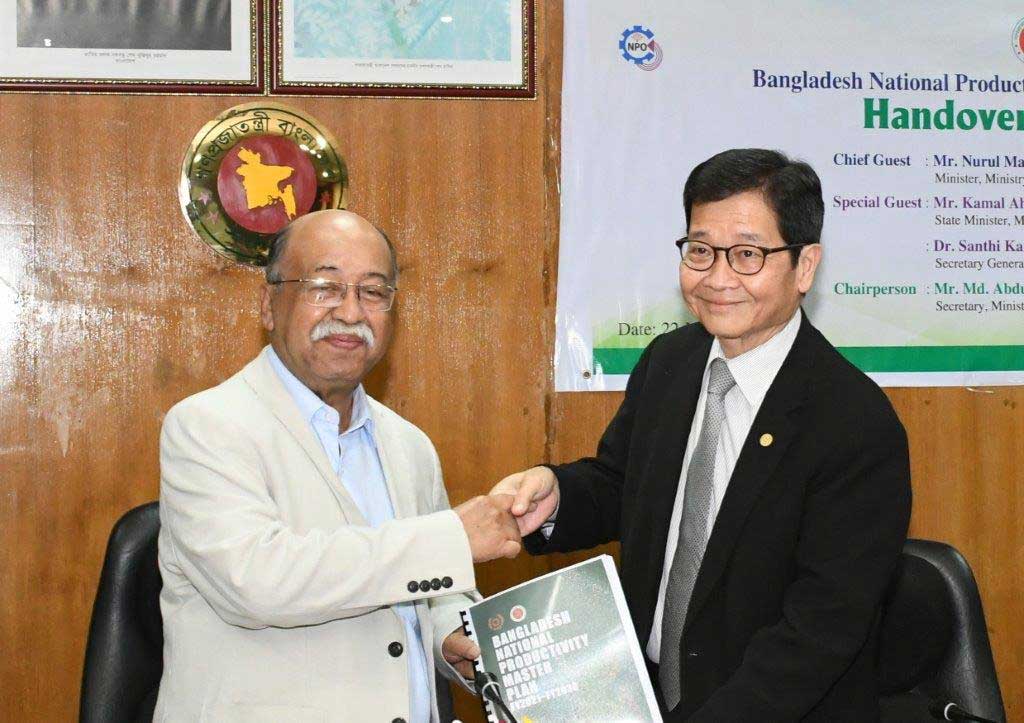
Select Page

APO Secretary-General Dr. Santhi Kanoktanaporn (R) handing over the National Productivity Master Plan 2021–2030 to Bangladesh’s Minister of Industries Nurul Majid Mahmud Humayun in Dhaka, 22 July 2019. (Photo: Press Information Department in Bangladesh).
Asian Productivity Organization (APO) Secretary-General Dr. Santhi Kanoktanaporn handed over the Bangladesh National Productivity Master Plan 2021–2030 to Minister of Industries Nurul Majid Mahmud Humayun in Dhaka, 22 July 2019. The plan represents the culmination of a six-month effort under the APO’s Specific National Program (SNP) involving preliminary research, consultations with relevant stakeholders in the country, and drafting the document with clear goals and strategies. It lays the foundation for improving productivity in the agriculture industry, and service sectors while making the overall economy agile, resilient, and future-ready.
After National Productivity Organisation (NPO) Director S.M. Ashrafuzzaman gave welcoming remarks at the handover event, Minister Humayun described how Bangladesh was moving forward to become a developed country under the “prudent policy and dynamic leadership of Prime Minister Sheikh Hasina.” He noted that, “In the last decade, the country’s industrial sector has been able to create a strong base. The contribution of the industrial sector to gross national income is increasing gradually.” Minister Humayun complimented the APO on developing the master plan and believed that it would play a crucial role in enhancing productivity in Bangladesh.
Secretary-General Dr. Santhi explained that, “This productivity master plan is based on the concept of sustainable productivity. Excellence alone no longer guarantees success in a world of constant change and uncertainty. Enterprises and economies as a whole should be resilient by taking a long-term view, developing future-readiness strategies, acting to address risks, and seizing opportunities for productivity growth that can be sustained in the highly uncertain, complex future.” He pointed out that the plan incorporated the agility–productivity–innovation nexus concept, which is defined as productivity supported by the use of knowledge capital and technology combined with continuous innovation and the agility to anticipate a complex, interconnected future to achieve sustainability.
A workshop was subsequently held on 23–25 July to orient approximately 50 key representatives of the NPO, Ministry of Industry, other government units, and business leaders on the details of the master plan and how it can be put into practice for maximum benefit. After additional consultations and review, the Bangladesh Productivity Master Plan 2021–2030 will become part of the national productivity policy or may serve as a draft for a revised document.